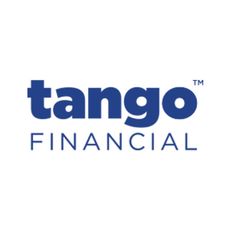Lets Chat
I’D LOVE TO HEAR FROM YOU
Modern Mortgage is a place we can partner together to build a relationship far beyond what a bank ever could. If you’ve got your paperwork ready, want to book a Discovery Call or need a burning mortgage question answered, here’s the spot to do it.
Fill in the form and I’ll get back to you within 1 business day or if you’d prefer, you’re more than welcome to give me a call on my cell at 604-644-1385.
Required fields are marked with *
Contact Us
Thank you for contacting me.
I will get back to you as soon as possible.
Oops, there was an error sending your message.
Please try again later.
Please try again later.
Old Ways Don't Open New Doors
Get Modern


By Tori Dolmans
•
01 May, 2024
Alternative lending refers to any lending practices that fall outside the normal banking channels. Alternative lenders think outside the box and offer solutions to Canadians who wouldn’t otherwise qualify for traditional mortgage financing. In an ideal world, we’d all qualify for the best mortgage terms available. However, this isn’t the case. Securing the most favourable terms depends on your financial situation. Here are a few circumstances where alternative lending might make sense for you. Damaged Credit Bad credit doesn’t disqualify you from mortgage financing. Many alternative lenders look at the strength of your employment, income, and your downpayment or equity to offer you mortgage financing. Credit is important, but it’s not everything, especially if there is a reasonable explanation for the damaged credit. When dealing with alternative lending, the interest rates will be a little higher than traditional mortgage financing. But if the choice is between buying a property or not, or getting a mortgage or not, having options is a good thing. Alternative lenders provide you with mortgage options. That’s what they do best. So, if you have damaged credit, consider using an alternative lender to provide you with a short-term mortgage option. This will give you time to establish better credit and secure a mortgage with more favourable terms. Use an alternative lender to bridge that gap! Self-Employment If you run your own business, you most likely have considerable write-offs that make sense for tax planning reasons but don’t do so much for your verifiable income. Traditional lenders want to see verifiable income; alternative lenders can be considerably more understanding and offer competitive products. As interest rates on alternative lending aren’t that far from traditional lending, alternative lending has become the home for most serious self-employed Canadians. While you might pay a little more in interest, oftentimes, that money is saved through corporate structuring and efficient tax planning. Non-traditional income Welcome to the new frontier of earning an income. If you make money through non-traditional employment like Airbnb, tips, commissions, Uber, or Uber eats, alternative lending is more likely to be flexible to your needs. Most traditional lenders want to see a minimum of two years of established income before considering income on a mortgage application. Not always so with alternative lenders, depending on the strength of your overall application. Expanded Debt-Service Ratios With the government stress test significantly lessening Canadians' ability to borrow, the alternative lender channel allows expanded debt-service ratios. This can help finance the more expensive and suitable property for responsible individuals. Traditional lending restricts your GDS and TDS ratios to 35/42 or 39/44, depending on your credit score. However, alternative lenders, depending on the loan-to-value ratio, can be considerably more flexible. The more money you have as a downpayment, the more you’re able to borrow and expand those debt-service guidelines. It’s not the wild west, but it’s certainly more flexible. Connect anytime Alternative lending can be a great solution if your financial situation isn’t all that straightforward. The goal of alternative lending is to provide you with options. You can only access alternative lending through the mortgage broker channel. Please connect anytime if you’d like to discuss mortgage financing and what alternative lending products might suit your needs; it would be a pleasure to work with you.

By Tori Dolmans
•
24 Apr, 2024
If you need a mortgage, working with an independent mortgage professional will save you money and provide you with better options than dealing with a single financial institution. And if that is the only sentence you read in this entire article, you already know all you need to know. However, if you’d like to dig a little deeper, here are some reasons that outline why working with an independent mortgage professional is in your best interest. The best mortgage is the one that costs you the least over the long term. An independent mortgage professional can help you achieve this. Mortgages aren’t created equally. Oftentimes slick marketing leads us to believe the lowest “sticker price” is the best value. So when it comes to mortgage financing, you might assume the mortgage with the lowest rate is the best option. This isn’t always the case. When considering a mortgage, your goal should be to find the mortgage that will cost you the least amount of money over the total length of the mortgage. There are many factors to consider, such as your specific financial situation, the rate, initial term length, fixed or variable rate structure, amortization, and the penalties incurred should you need to break your mortgage early; the fine print matters. An independent mortgage professional can walk through all these factors with you and will help you find the mortgage that best suits your needs. Sometimes taking a mortgage with a slightly higher rate can make sense if it gives you flexibility down the line or helps you avoid huge payout penalties. Working the numbers with an independent mortgage professional will save you money in the long run instead of just going with what a single lender is offering. Save time by letting an independent mortgage professional find the best mortgage product for you. Let's face it, getting a mortgage can be challenging enough on its own. Everyone’s financial situation is a little different and making sense of lender guidelines is a full-time job in itself. So instead of dealing with multiple lending institutions on your own, when you work with an independent mortgage professional, you submit a single mortgage application that is compared to the lending guidelines of various mortgage lenders. This will save you time as you don’t have to go from bank to bank to ensure you’re getting the best mortgage. Simply put, an independent mortgage professional works for you and has your best interest in mind, while a bank specialist works for the bank and has the bank's best interest in mind. It’s no secret that Canadian banks make a lot of money. It seems every quarter they turn billions of dollars in profit (despite the economic environment). They do this at the expense of their customers by charging as much interest as they can and structuring mortgages to their benefit. It’s all about the alignment of interest. Bank employees work for the bank; the bank pays them to make money for the bank. In contrast, independent mortgage professionals are provincially licensed to work for their clients and are paid a standardized placement or finder’s fee for matching borrowers with lenders. When you work with a single bank, you only have access to the products of that bank. When you work with an independent mortgage professional, you have access to all of the lenders that mortgage professionals have relationships with and all their products. Working with an independent mortgage professional will save you money, time, and provide you with better mortgage options. Plus, you have the added benefit of working with a licensed professional looking out for your best interest, providing you with the best possible advice. If you’d like to know more or to discuss mortgage financing, please connect anytime; it would be a pleasure to work with you.

By Tori Dolmans
•
18 Apr, 2024
Dreaming of owning your first home? A First Home Savings Account (FHSA) could be your key to turning that dream into a reality. Let's dive into what an FHSA is, how it works, and why it's a smart investment for first-time homebuyers. What is an FHSA? An FHSA is a registered plan designed to help you save for your first home taxfree. If you're at least 18 years old, have a Social Insurance Number (SIN), and have not owned a home where you lived for the past four calendar years, you may be eligible to open an FHSA. Reasons to Invest in an FHSA: Save up to $40,000 for your first home. Contribute tax-free for up to 15 years. Carry over unused contribution room to the next year, up to a maximum of $8,000. Potentially reduce your tax bill and carry forward undeducted contributions indefinitely. Pay no taxes on investment earnings. Complements the Home Buyers’ Plan (HBP). How Does an FHSA Work? Open Your FHSA: Start investing tax-free by opening your FHSA. Contribute Often: Make tax-deductible contributions of up to $8,000 annually to help your money grow faster. Withdraw for Your Home: Make a tax-free withdrawal at any time to purchase your first home. Benefits of an FHSA: Tax-Deductible Contributions: Contribute up to $8,000 annually, reducing your taxable income. Tax-Free Earnings: Enjoy tax-free growth on your investments within the FHSA. No Taxes on Withdrawals: Pay $0 in taxes on withdrawals used to buy a qualifying home. Numbers to Know: $8,000: Annual tax-deductible FHSA contribution limit. $40,000: Lifetime FHSA contribution limit. $0: Taxes on FHSA earnings when used for a qualifying home purchase. In Conclusion A First Home Savings Account (FHSA) is a powerful tool for first-time homebuyers, offering tax benefits and a structured approach to saving for homeownership. By taking advantage of an FHSA, you can accelerate your journey towards owning your first home and make your dream a reality sooner than you think.


Subscribe
Thank you for contacting me.
I will get back to you as soon as possible.
Oops, there was an error sending your message.
Please try again later.
Please try again later.
Follow
@MORTGAGEBYTORI
© 2024
| Mortgage By Tori | All Rights Reserved | Privacy and Content Notice

